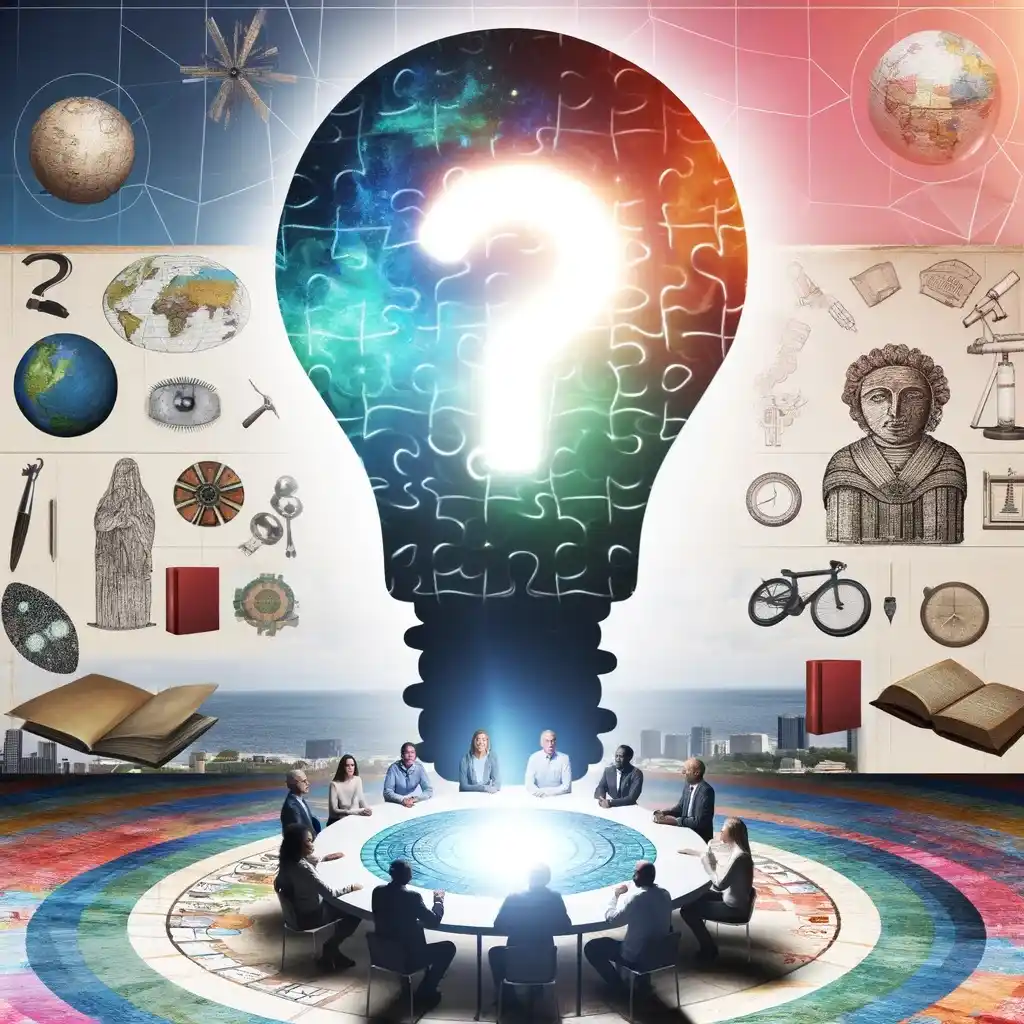To delve into the complexities of truth in the context of TOK, one might consider how truth is constructed, challenged, and understood in disciplines such as the natural sciences, human sciences, arts, and ethics. Each area offers unique insights into the nature of truth, from empirical verification in the sciences to interpretative understanding in the arts.
The post is going to be very comprehensive on the following pointers:
- Meaning of truth through knowledge questions each scaffolded within an element of knowledge framework-scope, methods and tools, perspectives, and ethics through real life examples and classroom activities
- Connecting knowledge and language with truth- knowledge questions unpacked within any of the knowledge framework elements connected with RLS and explored through classroom activities
- Connecting knowledge and technology with truth- knowledge questions unpacked within any of the knowledge framework elements connected with RLS and explored through classroom activities
- Connecting knowledge and politics with truth- knowledge questions unpacked within any of the knowledge framework elements connected with RLS and explored through classroom activities
- Connecting knowledge and religion with truth- knowledge questions unpacked within any of the knowledge framework elements connected with RLS and explored through classroom activities
- Connecting knowledge and indigenous societies with truth- knowledge questions unpacked within any of the knowledge framework elements connected with RLS and explored through classroom activities
- Some stunning tea table discussions on truth in the pursuit of knowledge in and beyond a TOK classroom
It’s a well studied thought process involved in designing the submodules as the students need to understand the connotation of truth as a linking TOK concept in the pursuit of knowledge and each of the optional themes. Since the teachers have a discretion of choosing two optional themes in the entire TOK discourse, there will be no gap created in connecting knowledge with any of the two prescribed optional themes through the TOK linking thread of truth.
In essence, the pursuit of truth in TOK encourages critical examination of the assumptions underlying knowledge claims, the evidence supporting these claims, and the justification of belief in these truths. It invites a reflective inquiry into how we come to know what we claim to know and the degree of certainty or doubt that accompanies these claims.
Now, the purpose is to make the classroom exciting and buzzing with the discussions on truth connected with real life examples. Each of the examples connect with a knowledge question (KQ) scaffolded within a knowledge framework element, which is going to be explored through a classroom activity. Teachers may also connect the thinking dots with some collaborative TED talk discussions.
Specific Real-Life Examples for Each Knowledge Framework Component
- Scope
Example: Exploring the implications of mathematical proof on our understanding of truth. This could involve a classroom discussion on famous proofs, such as the Pythagorean theorem, and their enduring validity across time and cultures.
Learning Outcome: Students will appreciate the universal nature of mathematical truth and how it transcends subjective interpretation.
Reflection: Reflect on the idea that despite the abstract nature of mathematics, its truths hold concrete significance in the real world.
Knowledge Question: How does mathematical proof serve as a universal standard of truth across different cultures and time periods?
Unpacking the Activity:
Objective: The main objective of this activity is to explore the concept of mathematical truth as a universal language that transcends cultural and temporal boundaries. Students will investigate famous mathematical proofs, such as the Pythagorean theorem, to understand their validity and applicability across various contexts.





